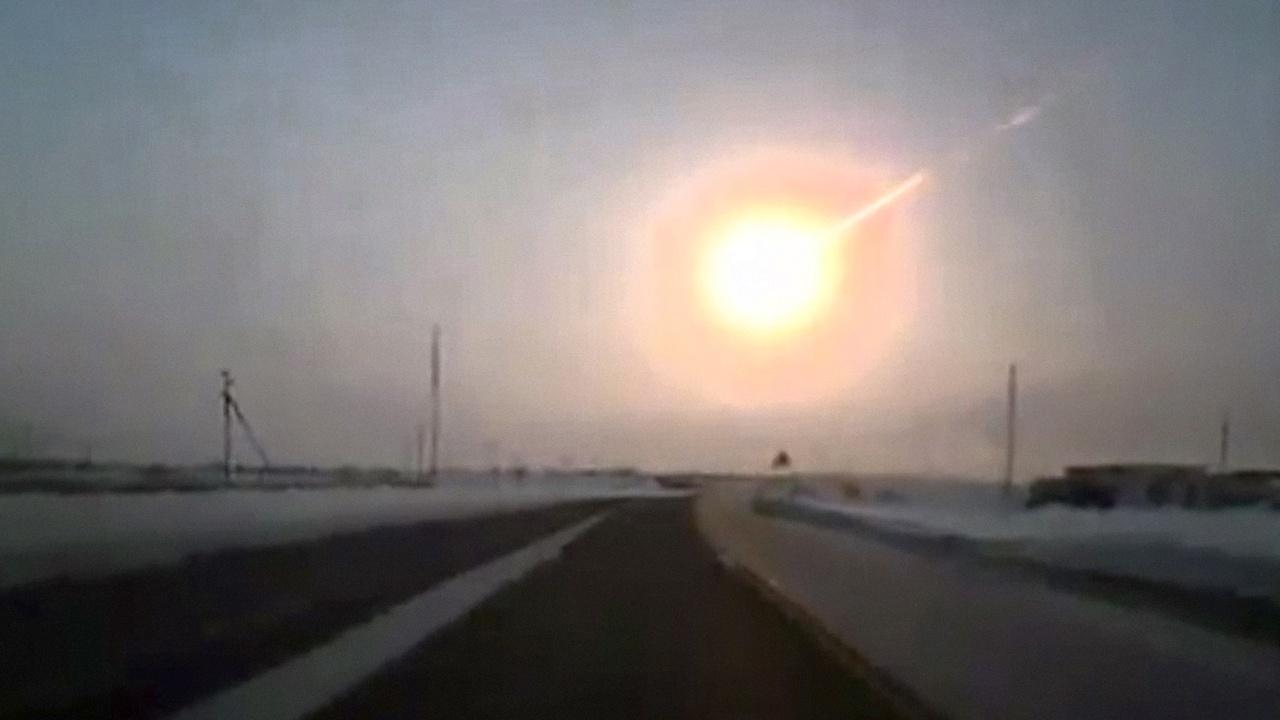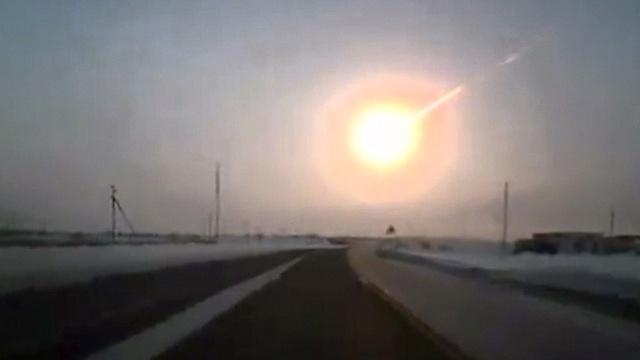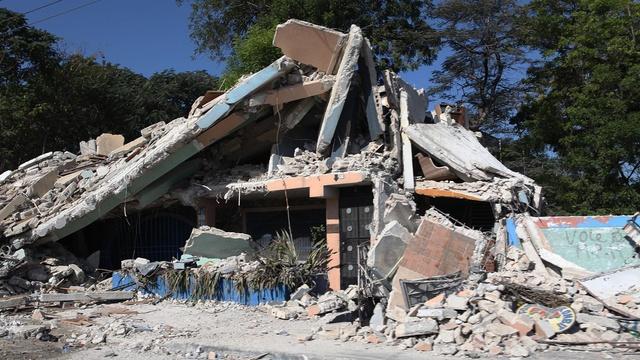Meteor Strike -
nova
A blinding streak of light screaming across the Russian sky, followed by a shuddering blast strong enough to damage buildings and send more than 1000 people to the hospital. On the morning of February 15th, a 7000 ton asteroid crashed into the Earth's atmosphere, exploded and fell to earth across a wide swath near the Ural mountains. According to NASA, the Siberian Meteor, which exploded with the power of 30 Hiroshima bombs, was the largest object to burst in the atmosphere since a 1908 event near Siberia's Tunguska river. That time there were few eyewitnesses and no record of the event except for thousands of acres of flattened trees. This time however the event was captured by countless digital dashboard cameras, which have lately become a common fixture in Russian autos and trucks. Within days, armed with this unprecedented crowd-sourced material, NOVA crews hit the ground in Russia along with impact scientists as they hunt for debris from the explosion and clues to the meteor's origin and makeup. To understand how lucky we were this time, we explore even greater explosions in the past, from Tunguska to the asteroid that extinguished the dinosaurs 65 million years ago. "Russian Meteor Strike" puts it all together and asks: Is our solar system a deadly celestial shooting gallery - with Earth in the cross-hairs? What are the chances that another, even more massive asteroid is heading straight for us? Are we just years, months or days away from a total global reboot of civilization, or worse?
Duration: 56 minutes and 46 seconds
Episode Number: 4013
No future air times were found for this episode.
About Nova:
PBS' premier science series helps viewers of all ages explore the science behind the headlines.
Along the way, NOVA programs demystify science and technology and highlight the people involved in scientific pursuits.
Watch Nova - Clips, Episodes & Previews
Future Broadcast times for "Nova": (show all)
| Wed, Jan 14 | 9:00 P.M. | What Are UFOs? NHPBS (11.1) |
| Thu, Jan 15 | 1:00 A.M. | What Are UFOs? NHPBS (11.1) |
| Fri, Jan 16 | 3:00 P.M. | What Are UFOs? NHPBS (11.1) |
| Sat, Jan 17 | 11:00 A.M. | NOVA Universe Revealed: Milky Way NH Explore (11.2) |
| Sat, Jan 17 | 1:00 P.M. | What Are UFOs? NH Explore (11.2) |
| Sun, Jan 18 | 12:00 A.M. | What Are UFOs? NHPBS (11.1) |
| Sun, Jan 18 | 4:00 A.M. | What Are UFOs? NH Explore (11.2) |
| Sun, Jan 18 | 7:00 A.M. | What Are UFOs? NHPBS (11.1) |
| Sun, Jan 18 | 8:00 P.M. | What Are UFOs? NH Explore (11.2) |
| Sun, Jan 18 | 10:00 P.M. | NOVA Universe Revealed: Milky Way NH Explore (11.2) |
| Mon, Jan 19 | 12:00 A.M. | What Are UFOs? NH Explore (11.2) |
| Mon, Jan 19 | 2:00 A.M. | NOVA Universe Revealed: Milky Way NH Explore (11.2) |
| Tue, Jan 20 | 7:00 P.M. | What Are UFOs? NH World (11.3) |
| Wed, Jan 21 | 12:00 A.M. | What Are UFOs? NH World (11.3) |
| Wed, Jan 21 | 8:00 A.M. | What Are UFOs? NH World (11.3) |
| Wed, Jan 21 | 9:00 P.M. | Asteroids: Spark of Life? NHPBS (11.1) |
NHPBS Over-the-Air Broadcast
WENH-TV Ch. 11 Durham
WLED-TV Ch. 48 Littleton
WEKW-TV Ch. 18 Keene
W50DP-D Ch. 50 Hanover
W34DQ-D Ch. 34 Pittsburg
NHPBS Five Channels
NHPBS - 11.1
Explore - 11.2
World - 11.3
Create - 11.4
Kids - 11.5
All of our channels and NHK World Japan are streaming LIVE ONLINE and on the PBS App, available on most devices.


 Meteor Strike Preview
Meteor Strike Preview Robotic Cars
Robotic Cars Detecting Earthquakes
Detecting Earthquakes Change Blindness
Change Blindness Human Hibernation
Human Hibernation Profile: Jason Leigh
Profile: Jason Leigh


































![American Masters | Marlee Matlin: Not Alone Anymore [EAD]](https://image.pbs.org/contentchannels/4/DQonQiQxfoWZiaPvAsVCw.jpg.resize.200x300.jpg)






